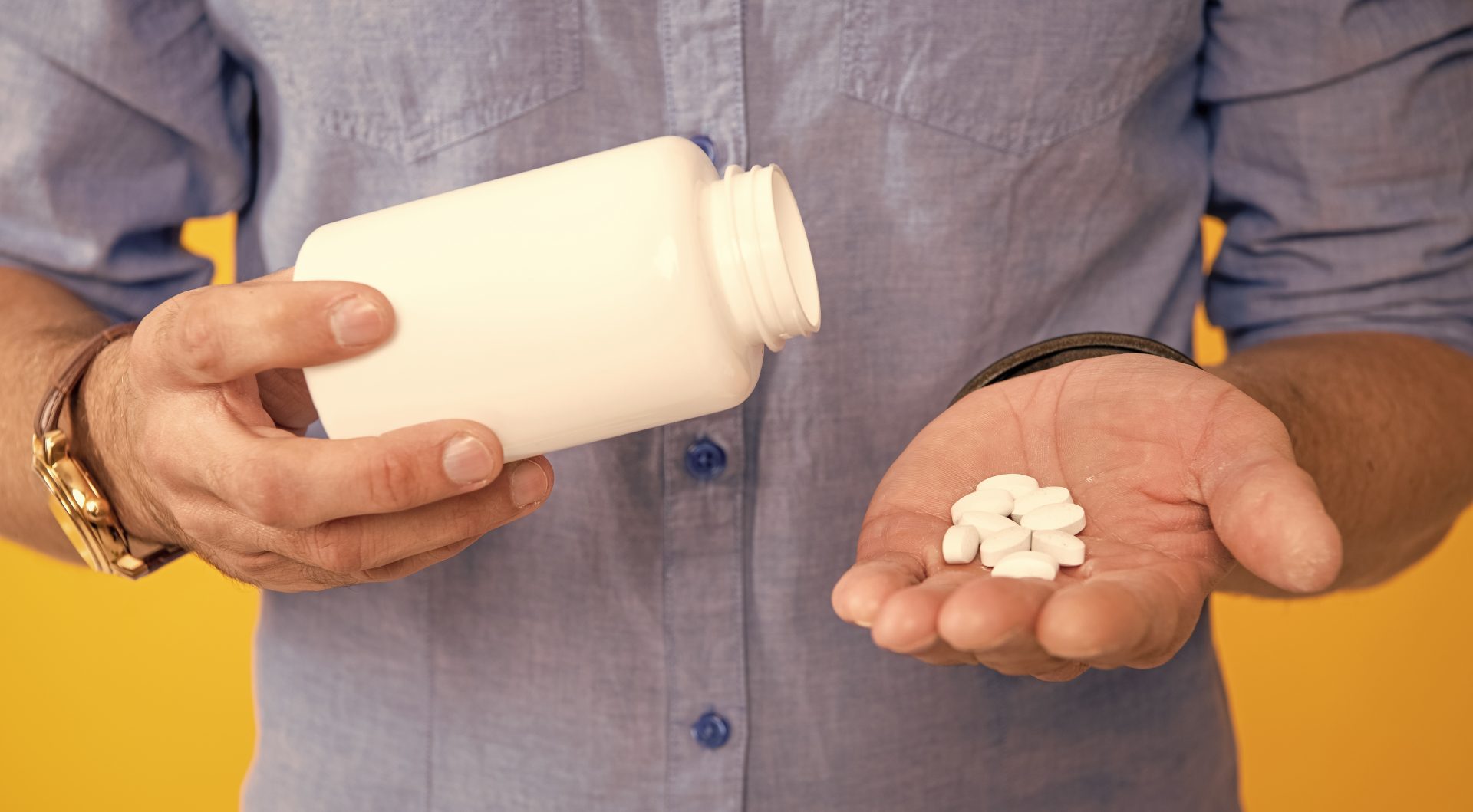The performance supplement industry has skyrocketed in recent years, with products promising everything from increased muscle mass to enhanced bedroom performance flying off shelves nationwide. While these supplements tempt consumers with visions of peak physical condition and renewed vigor, many harbor a dangerous secret: unlisted prescription medications that can trigger life-threatening complications.
This multi-billion-dollar industry thrives on marketing “natural” alternatives while often concealing pharmaceutical ingredients that require medical supervision. As sales continue to climb, health experts warn that many consumers remain completely unaware of what they’re actually putting into their bodies.
How unlisted prescription drugs infiltrate the market
The most concerning trend in performance supplements involves the inclusion of potent prescription medications without proper labeling. FDA investigations have uncovered numerous products containing sildenafil and tadalafil—the active ingredients in prescription erectile dysfunction medications—despite marketing claims of “all-natural” formulations.
- Hidden pharmaceuticals: Products with names like ZoomMax, ZapMax, and PeakMax have tested positive for prescription-strength drugs while being sold as herbal alternatives. These medications appear nowhere on ingredient lists, leaving consumers in the dark about what they’re actually consuming.
- Misleading marketing: Manufacturers deliberately use terms like “maximum strength” and “natural power booster” to suggest safety while including pharmaceutical compounds that require medical oversight. This deceptive practice lets companies sell prescription-grade effects without medical safeguards.
- Lack of quality control: Without mandatory pre-market testing, supplement manufacturers operate with minimal oversight. This regulatory gap allows contaminated or intentionally adulterated products to reach consumers without safety verification.
- Inconsistent formulations: Even within the same product line, ingredient concentrations may vary dramatically between batches. This inconsistency means consumers never know exactly what dose they’re receiving, increasing risk of adverse reactions.
- Dangerous drug interactions: When supplements contain unlisted medications, they can interact dangerously with prescription drugs. For men taking nitrate medications for heart conditions, these hidden ingredients can cause life-threatening drops in blood pressure.
- Delayed medical treatment: By masking symptoms temporarily, these supplements may prevent men from seeking proper medical care for underlying conditions that require diagnosis and treatment.
- International manufacturing concerns: Many supplements originate from international facilities with limited quality control standards, further increasing contamination risks and formula inconsistency.
The life-threatening risks hiding behind promises
For men with pre-existing health conditions, these unregulated supplements pose particularly serious dangers. Those managing heart disease face acute risks when unknowingly combining nitrate medications with hidden erectile dysfunction drugs in supplements. This combination can trigger sudden, severe drops in blood pressure that may lead to heart attack or stroke.
Even for otherwise healthy individuals, consuming pharmaceutical-grade medications without proper medical screening creates substantial health risks. These active ingredients affect blood flow throughout the body, not just in targeted areas, potentially straining the cardiovascular system or exacerbating undiagnosed conditions.
Beyond cardiovascular concerns, some supplements have tested positive for steroids or steroid-like compounds that affect hormone balance. Long-term use can lead to liver damage, mood disorders, and fertility issues that may persist long after supplementation stops.
Why regulation fails to protect consumers
Unlike prescription medications, performance supplements exist in a regulatory gray area that manufacturers exploit to avoid stringent safety requirements. The FDA cannot require pre-market approval for dietary supplements, meaning these products reach store shelves without undergoing rigorous safety testing.
This regulatory gap allows companies to market aggressively while conducting minimal safety verification. Even when the FDA identifies dangerous products, the agency faces significant challenges removing them from the market. Manufacturers often simply reformulate slightly or rebrand entirely to avoid enforcement actions.
The supplement industry has successfully lobbied against stricter oversight for decades, maintaining this favorable regulatory environment. With limited resources for enforcement, regulatory bodies typically intervene only after receiving multiple reports of adverse effects—often too late for affected consumers.
How social media fuels dangerous trends
The digital marketing landscape has transformed how performance supplements reach consumers. Social media platforms like TikTok, Instagram, and YouTube serve as powerful marketing channels where influencers promote products with minimal disclosure of risks or potential side effects.
These influencers typically lack medical credentials yet advise millions on supplementation. Their personal testimonials, often financially incentivized, create the impression of guaranteed results while downplaying or completely omitting serious safety concerns.
The algorithms driving these platforms tend to amplify extreme claims and dramatic results, further distorting consumer expectations. Men seeking performance enhancement discover an echo chamber of seemingly miraculous results that foster unrealistic expectations and minimize awareness of dangers.
Most concerning, these marketing approaches specifically target male insecurities about physical performance, strength, and sexual prowess. By tapping into these deeply personal concerns, marketers create powerful emotional drivers that override rational risk assessment, leading consumers to try products they might otherwise approach with greater caution.
Finding genuinely safe alternatives
Despite these industry-wide concerns, some supplement manufacturers commit to rigorous safety standards and transparent practices. Consumers seeking safer options should look for products that have undergone independent verification through respected third-party testing programs.
Organizations like U.S. Pharmacopeia (USP), NSF International, and ConsumerLab conduct independent verification of supplement ingredients. Their certification marks indicate that products contain the ingredients listed on the label in the declared potency and amounts, without harmful levels of contaminants or hidden ingredients.
Even with these certifications, consumers should maintain realistic expectations about supplement effectiveness. Many ingredients marketed for performance enhancement show limited evidence of effectiveness in scientific studies, especially at the dosages typically included in commercial products.
L-arginine and citrulline, for example, have demonstrated some benefit for circulation in clinical trials, but often appear in supplements at concentrations far below the effective doses used in research. This pattern repeats across many popular supplement ingredients, creating a situation where products may be safe but largely ineffective.
When medical expertise matters most
The safest approach to addressing performance concerns begins with consulting healthcare providers rather than supplement retailers. Physicians can identify underlying causes of decreased energy, reduced athletic performance, or erectile difficulties—often addressing treatable medical conditions that supplements merely mask.
Primary care providers can assess cardiovascular health, hormone levels, medication effects, and other factors that impact physical performance across all domains. This comprehensive approach addresses root causes rather than symptoms, leading to more sustainable improvements than supplement use.
For men specifically concerned about sexual performance, specialized healthcare providers offer evidence-based treatments with established safety profiles. These medical approaches include properly dosed and monitored medications when appropriate, along with lifestyle modifications that address underlying causes.
Creating a personal protection plan
Men interested in optimizing performance can take several concrete steps to protect themselves in this largely unregulated marketplace:
Research thoroughly before purchasing any performance supplement, regardless of marketing claims or celebrity endorsements. Verify ingredients through independent sources rather than relying solely on manufacturer websites.
Discuss supplement use openly with healthcare providers, even if the products claim to be natural. This transparency allows for proper monitoring and reduces interaction risks with prescription medications.
Start with the basics of performance enhancement—adequate sleep, proper nutrition, stress management, and appropriate exercise—before turning to supplementation. These foundational elements often deliver more significant benefits than any supplement.
Approach extraordinary claims with heightened skepticism, particularly products promising immediate or dramatic results. Legitimate performance enhancement typically occurs gradually through consistent healthy behaviors rather than from a single supplement.
Report adverse effects to the FDA’s MedWatch program to help identify dangerous products and protect other consumers from similar experiences. This reporting plays a crucial role in the limited regulatory oversight that does exist.
Finding balance in a supplement-saturated world
The performance supplement industry continues expanding, with new products constantly emerging with bold claims and flashy packaging. Behind this growth lies a fundamental truth: many men seek shortcuts to enhanced performance without understanding the potential costs to their health.
A more balanced approach recognizes that optimal performance—whether athletic, cognitive, or sexual—emerges primarily from consistent healthy behaviors rather than bottled solutions. While some supplements may play a supporting role when used appropriately, they cannot replace the foundations of good health.
For those genuinely concerned about performance issues, the most effective path begins with medical consultation rather than self-medication. Healthcare providers can distinguish between normal variations in performance and genuine medical concerns requiring intervention, then recommend evidence-based approaches tailored to individual needs.
As the supplement industry evolves, educated consumers must demand greater transparency and accountability from manufacturers. By approaching performance enhancement as a holistic health journey rather than a quick fix, men can avoid the most dangerous pitfalls of the supplement market while working toward sustainable improvements in performance and overall wellbeing.













